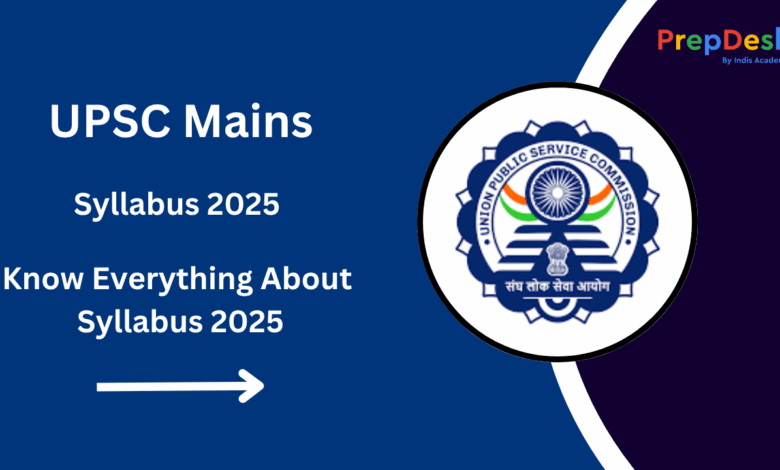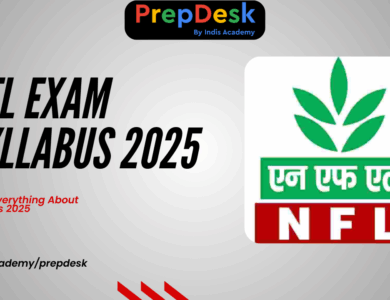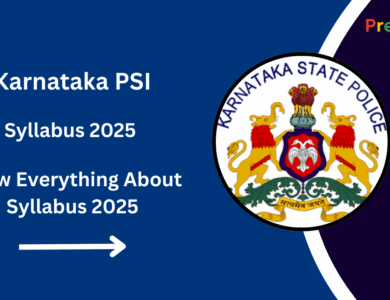UPSC Mains 2025 Syllabus: In-Depth Analysis & Preparation Tips
Dive into a comprehensive analysis of the UPSC Mains 2025 Syllabus. Understand the structure of each paper, key topics, and effective preparation strategies to tackle the examination with confidence.

The Union Public Service Commission (UPSC) Civil Services Mains Exam is one of the most challenging and prestigious examinations in India. It tests candidates on their knowledge, analytical abilities, and writing skills through a detailed syllabus spanning multiple subjects. Understanding the syllabus thoroughly is the first step toward effective preparation.
This article provides a comprehensive and detailed UPSC Mains syllabus for 2025 — including subject-wise topics, descriptions, number of questions, marks distribution, links to syllabus PDFs, recommended books, and valuable preparation tips to help aspirants crack the exam.
What is UPSC Mains Exam?
The UPSC Civil Services Mains Exam is the second stage of the IAS/IPS/IFS selection process. Unlike the preliminary exam which is objective type, the Mains exam is descriptive and comprises nine papers, including:
- Two qualifying papers: Indian Language and English
- Seven merit-based papers: Essay, four General Studies (GS) papers, and two Optional subject papers.
The marks obtained in the merit-based papers determine the candidate’s ranking.
UPSC Mains Exam Pattern & Marks Distribution
| Paper No. | Paper Name | Description | Number of Questions | Marks | Qualifying / Merit |
|---|---|---|---|---|---|
| Paper A | Indian Language (Qualifying) | Any one of the 22 scheduled Indian languages | 1 paper, descriptive | 300 | Qualifying |
| Paper B | English (Qualifying) | English Language Paper | 1 paper, descriptive | 300 | Qualifying |
| Paper I | Essay | Essay writing on multiple topics | 2 essays (choice-based) | 250 | Merit |
| Paper II | General Studies I | Indian Heritage & Culture, History, Geography | 16 questions (descriptive) | 250 | Merit |
| Paper III | General Studies II | Governance, Constitution, Polity, Social Justice, IR | 16 questions (descriptive) | 250 | Merit |
| Paper IV | General Studies III | Economy, Science & Technology, Environment, Security | 16 questions (descriptive) | 250 | Merit |
| Paper V | General Studies IV | Ethics, Integrity, and Aptitude | 16 questions (descriptive) | 250 | Merit |
| Papers VI & VII | Optional Subject (2 Papers) | Candidate’s chosen subject | 16 questions per paper (descriptive) | 500 (250 each) | Merit |
UPSC Mains Qualifying Papers
1. Paper A – Indian Language (Qualifying)
| Details | Information |
|---|---|
| Language Options | Hindi, Tamil, Telugu, Urdu, Marathi, etc. |
| Marks | 300 (Qualifying) |
| Nature | Essay, Comprehension, Grammar, Translation |
Tip: Practice essay writing and translation between English and your chosen Indian language.
2. Paper B – English (Qualifying)
| Details | Information |
|---|---|
| Marks | 300 (Qualifying) |
| Nature | Essay, Grammar, Comprehension, Summary |
Tip: Focus on basic English grammar, reading comprehension, and formal writing.
Detailed UPSC Mains Syllabus: Subject-wise Topics & Description
1. Essay Paper ( Paper I ) – 250 Marks
Number of Questions: Candidates must write two essays by selecting one from each section.
| Topics | Description |
|---|---|
| Essay writing on diverse themes like social issues, governance, ethics, environment, economy, culture, technology, and international affairs. | The paper tests the candidate’s ability to present a coherent argument, use relevant examples, and maintain clarity and structure. |
2. General Studies Paper I – 250 Marks
Indian Heritage and Culture, History, and Geography of the World and Society
| Topics | Description |
|---|---|
| Indian Culture | Art forms, literature, music, architecture, heritage sites |
| Modern Indian History | Freedom struggle, socio-political movements, reform movements |
| Post-Independence India | Nation-building, socio-economic changes |
| World History | Industrial revolution, world wars, colonization, decolonization |
| Geography | Physical geography, climate, resources, agriculture, population, urbanization |
3. General Studies Paper II – 250 Marks
Governance, Constitution, Polity, Social Justice, and International Relations
| Topics | Description |
|---|---|
| Indian Constitution | Features, amendments, fundamental rights and duties, directive principles |
| Governance | Parliament, judiciary, local governance, public administration |
| Social Justice | Welfare schemes, rights of marginalized groups, social empowerment |
| International Relations | India’s foreign policy, bilateral relations, regional organizations, global groupings |
4. General Studies Paper III – 250 Marks
Technology, Economic Development, Biodiversity, Environment, Security, and Disaster Management
| Topics | Description |
|---|---|
| Indian Economy | Planning, budgeting, agriculture, industry, infrastructure |
| Science and Technology | Developments in IT, space technology, biotechnology |
| Environment and Ecology | Biodiversity, climate change, pollution, conservation efforts |
| Disaster Management | Types of disasters, mitigation, response strategies |
| Security Issues | Internal security challenges, cybersecurity, terrorism, border management |
5. General Studies Paper IV – 250 Marks
Ethics, Integrity, and Aptitude
| Topics | Description |
|---|---|
| Ethics and Human Interface | Moral values, human emotions, integrity |
| Emotional Intelligence | Managing emotions and attitudes |
| Public/Civil Service Values | Probity in governance, ethical governance |
| Philosophers and Thinkers | Indian and Western ethical thought |
| Case Studies | Real-life application of ethics in governance |
6. Optional Subject Papers (Paper VI & VII) – 500 Marks (250 + 250)
Candidates must choose one optional subject from a list of UPSC approved subjects. Each subject has a detailed syllabus divided into two papers. Popular optional subjects include History, Geography, Political Science, Sociology, Public Administration, Literature, Anthropology, Economics, and more.
—
Number of Questions & Question Format
| Paper | Number of Questions | Question Type | Word Limit / Marks per Question |
|---|---|---|---|
| Essay | 2 (choice-based) | Descriptive | Around 1000-1200 words per essay |
| GS Papers (II to V) | ~16 | Descriptive (structured) | Questions divided into parts, 10-20 marks each |
| Optional Papers | 16 | Descriptive | Questions with internal choice, varying marks |
—
UPSC Mains Syllabus PDF Download
You can download the official UPSC Mains syllabus PDF here:
—
Recommended Books for UPSC Mains Preparation
| Paper/Subject | Recommended Books / Sources |
|---|---|
| Essay |
|
| General Studies I |
|
| General Studies II |
|
| General Studies III |
|
| General Studies IV |
|
| Optional Subjects | Subject-specific standard books depending on choice (e.g., History by Bipin Chandra, Geography by G.C. Leong) |
—
Preparation Tips for UPSC Mains Exam
- Understand the Syllabus Fully: Break down the syllabus paper-wise and topic-wise. Know what to study and avoid unnecessary content.
- Consistent Answer Writing Practice: Practice writing answers within the word limit and time constraints. This improves speed and articulation.
- Make Concise Notes: Prepare short notes for revision, especially for current affairs, polity, and ethics.
- Focus on Current Affairs: Read newspapers daily and connect current events with static syllabus topics to enrich answers.
- Revise Regularly: Repeated revision ensures retention of facts and improves answer quality.
- Solve Previous Year Papers: Solve at least the last 10 years’ question papers to understand question patterns.
- Optional Subject Preparation: Dedicate focused time to your optional subject. Master its syllabus and practice answer writing.
- Ethics Paper Preparation: Use case studies and examples from daily life or public service to understand and answer effectively.
—
Conclusion
The UPSC Mains Exam is a rigorous test of a candidate’s intellectual ability, knowledge depth, and writing skills. A clear understanding of the detailed syllabus is essential for strategic preparation. By dividing your study plan according to the syllabus, practicing answer writing, staying updated on current affairs, and referring to the right resources, you can maximize your chances of success in the Mains exam.
Start early, maintain consistency, and approach each paper with confidence. Remember, quality preparation coupled with smart study techniques is the key to cracking the UPSC Mains exam.
If you want, I can help you create a custom study plan or provide detailed notes and mock questions for any specific UPSC Mains paper. Just let me know!





